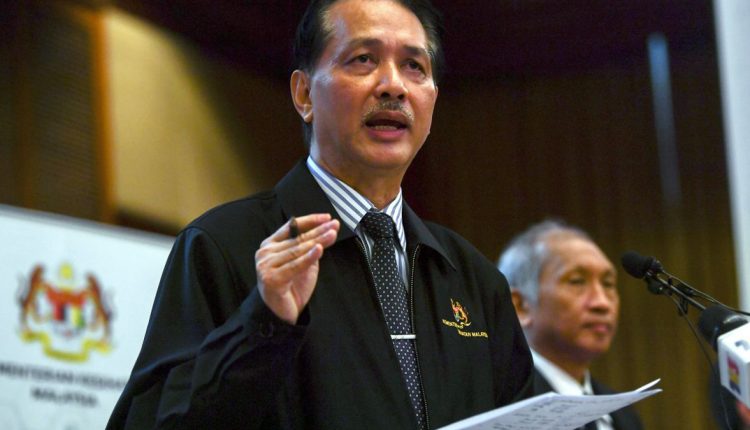PUTRAJAYA: The COVID-19 assessment centre is expected to start operations next week to coordinate and integrate the public and private hospitals in managing the pandemic cases in the country.
-Advertisement-
Health director-general Tan Sri Dr Noor Hisham Abdullah said coming Saturday they will hold the third discussion with the private hospital to look into details and technical implementations for the centre.
“We will discuss all existing issues and try to resolve them as well as coordinate the work process in roundtable discussions between the public and private sectors.
“So we hope that when we set up the COVID-19 assessment centre, some patient groups can be managed by the private sector,” he said at a press conference on the development of COVID-19 here yesterday.
However, he said since the second wave of COVID-19 hit the country, the private sector had lent a hand to assist the government including mobilising some of their specialists and staff to work at the Sungai Buloh Hospital.
Dr Noor Hisham said the coordination was not only in terms of COVID-19 patient management but were also looking into haemodialysis centres because most of these cases depended on the private health sector.
“For example in Tawau, Sabah, the staff at a private haemodialysis centre was infected and quarantined but the services needed to be continued because otherwise, patients will not have access for haemodialysis. So, we from the public sector send our staff to operate the services there,” he said.
-Advertisement-
He said the Health Ministry (MOH) was expected to increase the capacity of COVID-19 laboratories that can conduct the Reverse Transcription Polymerase Chain Reaction (RT-PCR) tests, to between 100,000 to 150,000 tests per day.
“So far, we have 68 laboratories that carry out 70,000 RT-PCR tests per day and the capacity of these laboratories will be enhanced. We will also increase COVID-19 screening by using the Antigen Rapid Test Kit (RTK-Ag),” he said.
Dr Noor Hisham also said that cooperation from the Malaysian Armed Forces, Ministry of Science, Technology and Innovation (MOSTI), private universities and private laboratories was needed to increase laboratory capacity.
“We encourage the private sector to come forward and help increase laboratory capacity… we need to maximise its use,” he said.
Commenting on the rising cases and clusters related to funerals, Dr Noor Hisham said MOH has suggested that such gatherings be limited to a maximum of 20 people to avoid potential infection.
“We understand that funerals are a sensitive issue, due to cultural and emotional reasons. But we hope at this point of time, those involved will comply with the SOP (standard operating procedure) set and get a police permit first,” he said.- BERNAMA

